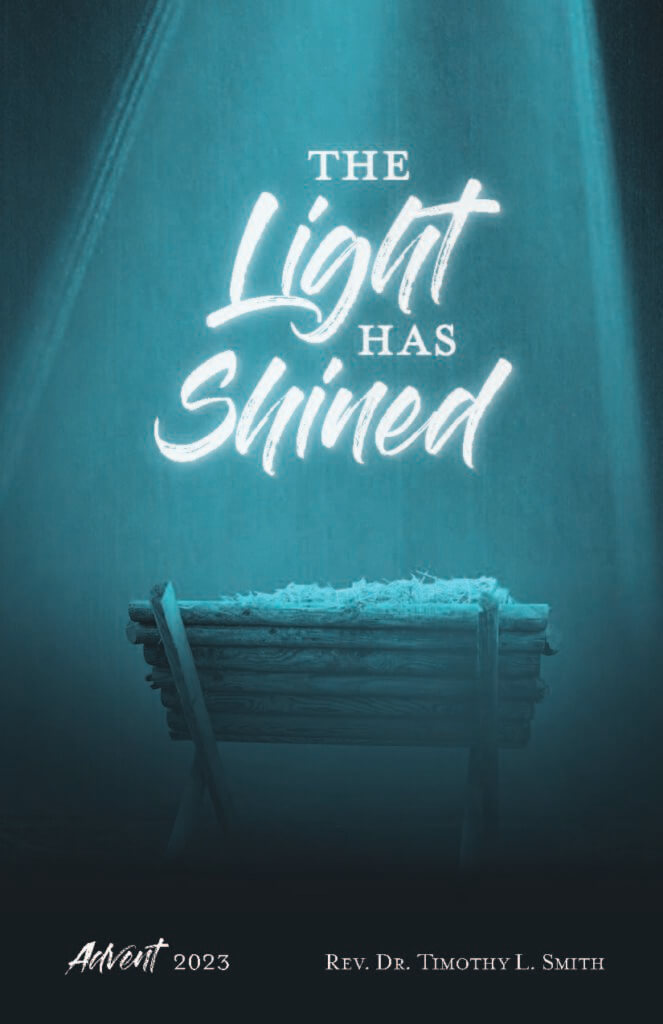But there will be no gloom for those in anguish. In the former time he brought into contempt the land of Zebulun and the land of Naphtali, but in the latter time he will make glorious the way of the sea, the land beyond the Jordan, Galilee of the nations. The people who walked in darkness have seen a great light; those who lived in a land of deep darkness—on them light has shined.
Isaiah 9:1-2
They came from the East in search of the light. The Dead Sea Scrolls and recent archeology identify them as a small band of King David’s family returning to Israel around 100 B.C. They were among the Jews left in the Babylonian Diaspora, after the Exile, who longed to see the light of Messiah’s promised coming. Archeologists say they settled a tiny village in Galilee which they named Nazara, meaning “branch” (Hebrew: netzer); we know the village as Nazareth. They journeyed believing Isaiah’s promise of Messiah, God’s appointed “Branch”: “A shoot shall come out from the stock of Jesse, and a branch [netzer) shall grow out of his roots. The spirit of the LORD shall rest on him…” (Isaiah 11:1-2a).
Nazara is nestled in a limestone hill, a site dating from the Early Bronze Age. That early proto-Nazareth was abandoned around 733 B.C. as the Assyrian conqueror Tiglath-Pileser III ravaged Galilee, deporting Jews into exile in Assyria (2 Kings 15:29). Brutal Tiglath fancied himself “King of the World”, and established the Assyrian province of Megiddo in Galilee. He made this region a mishmash of foreign idolaters, later known as Armageddon, or “Mount of Megiddo”.
Those cruel days are the “former time” which Isaiah grieves in today’s scripture, calling them times “of deep darkness.” Isaiah is remembering the frequent invasions of that area that “brought into contempt the land of Zebulun and the land of Naphtali.” Zebulon and Naphtali were two of Israel’s tribes allotted land around the Sea of Galilee. The two tribes lived in Israel’s breadbasket and straddled the bustling international trade route from Mesopotamia that Isaiah designates “the way of the Sea.” Their strategic location made Zebulon and Naphtali the first to come under the boot of warring armies. They were known as “Galilee of the nations”, and looked down on by the other Israeli tribes as the people “who lived in a land of deep darkness.”
Remarkably, Isaiah foresees that it is this despised region that will first see the light of Messiah’s new day. And so, the Gospel of Matthew joyfully reveals the fulfillment of Isaiah’s prophecy in Jesus of Nazareth, the long promised “Branch”:
“Jesus left Nazareth and made his home in Capernaum by the lake, in the territory of Zebulun and Naphtali, so that what had been spoken through the prophet Isaiah might be fulfilled: ‘Land of Zebulun, land of Naphtali, on the road by the sea, across Jordan, Galilee of the Gentiles—the people who sat in darkness have seen a great light, and for those in the region and shadow of death light has dawned’” (Matthew 4:13-16).
Remarkably, Isaiah foresees that it is this despised region that will first see the light of Messiah’s new day. And so, the Gospel of Matthew joyfully reveals the fulfillment of Isaiah’s prophecy in Jesus of Nazareth, the long promised “Branch”:
“Jesus left Nazareth and made his home in Capernaum by the lake, in the territory of Zebulun and Naphtali, so that what had been spoken through the prophet Isaiah might be fulfilled: ‘Land of Zebulun, land of Naphtali, on the road by the sea, across Jordan, Galilee of the Gentiles—the people who sat in darkness have seen a great light, and for those in the region and shadow of death light has dawned’” (Matthew 4:13-16).
Where people “in the former time” had walked in darkness, “in the latter time” Jesus makes glorious. Jesus of Nazareth sees fit to be called a Galilean, a friend of sinners, come to seek and save the lost. On them the Jesus Light has shined! Missionary statesman E. Stanley Jones told how early followers of Jesus never said in fear, “Look at what the world is coming to!” Rather, they joyfully exclaimed, “Look at who has come to the world!” It is Jesus who comes to us in our darkness, promising: “I am the light of the world. Whoever follows me will never walk in darkness but will have the light of life” (John 8:12).
Pastor, theologian, and modern martyr, Dietrich Bonhoeffer, experienced the Jesus Light in the Advent season of 1943. It was a dark time as he was locked in a Nazi prison awaiting death by hanging, but he wrote to his parents about the light of Jesus’ presence with him:
“From the Christian point of view, spending Christmas in a prison doesn’t pose any special problem. Most likely, a more meaningful and authentic Christmas is celebrated here by many people than in places where only the name of the feast remains. Misery, pain, poverty, loneliness, helplessness, and guilt have an altogether different meaning in God’s eyes than in the judgment of men. God turns toward the very places from which humans tend to turn away. Christ was born in a stable because there was no room for him at the inn.”
(Dietrich Bonhoeffer, The Mystery of Holy Night)
Look at Who has come to our world!
PRAY
Our loving Father, enemy of darkness, shine the bright beams of your love upon us today. We live in a world that often frightens us. Show us the light of Jesus today in someone we meet, a conversation we have, a word of Scripture, a thought you give to us. Thank You, faithful God, that you did not give up on Zebulin and Napthali and that you never give up on us. In the name above every name, we are bold to pray. Amen.



